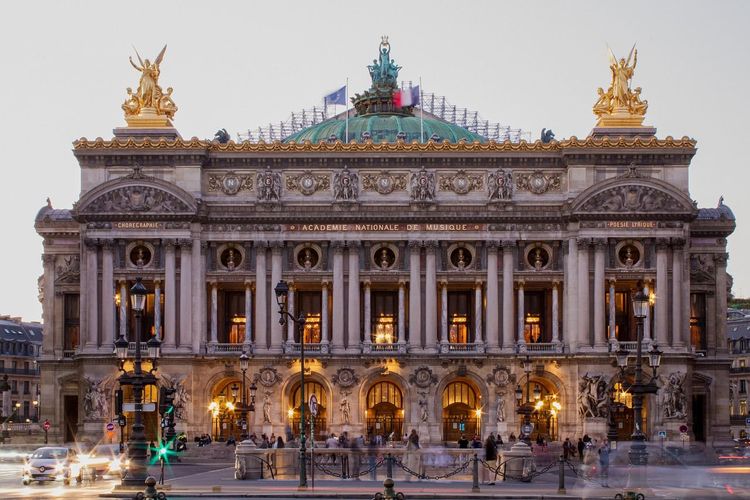Palais Garnier

Palais Garnier: A Masterpiece of Parisian Elegance
The Palais Garnier, also known as the Paris Opera House, is a symbol of grandeur and artistic sophistication in the French capital. Designed by architect Charles Garnier, it was inaugurated in 1875 as part of Napoleon III's grand reconstruction of Paris during the Second Empire. Renowned for its Neo-Baroque architecture, the Palais Garnier is one of the most famous opera houses in the world.
Exterior Architecture
The exterior of the Palais Garnier is adorned with intricate sculptures and statues representing Greek mythology. Notable artists like François Jouffroy and Jean-Baptiste Claude Eugène Guillaume contributed to these masterpieces. The majestic façade, with its gilded ornaments and grand columns, makes the building a true architectural marvel.
Interior Design
The interior of the Palais Garnier is a feast for the senses, featuring lavish decorations of multi-colored marble friezes, golden accents, and stunning ceiling murals depicting Greek legends. The grand staircase, made of white marble, is flanked by bronze statues of angels and nymphs holding lamps, epitomizing the opulence of the Baroque style.
The Opera House
The opera house seats up to 1,600 guests and features a stage large enough to accommodate 450 performers. Its centerpiece is the magnificent crystal chandelier, weighing seven tons, which illuminates the auditorium. The theater is home to bronze statues of legendary composers, including Mozart, Rossini, and Beethoven, and hosts world-class ballet and classical music performances.
Exploring the Palais Garnier
Visitors can enjoy wide hallways, breathtaking views of the architecture, and the grand foyer, which rivals the opulence of Versailles. Surrounding the Palais Garnier, visitors can stroll through the nearby parks or dine at the Opera Restaurant, located on the building's eastern façade, offering French and international cuisine.
Visitor Information
- Tickets: €9 for adults, €17 with guided tours.
- Location: Located in Place de l’Opéra, Paris, France.
- Transportation: Accessible via the Opéra Metro Station, public buses (20, 21, 22, 27, 29, 31, 39, 42, 52, 53, 66, 68, 81), or the Auber RER Station.
The Palais Garnier is not only a cultural icon but also a stunning example of Parisian artistry and elegance, making it an essential destination for visitors to the City of Light.